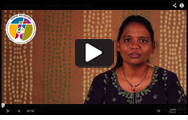

Resources
TIMS and Radi-AID videos
1. How do these videos challenge your perception(s) of mission?
2. How can our perceptions influence the ways in which we are in relationship with others?
3. The TIMS video raises questions about power and our assumptions about what abundant life may mean to others. The Radi-AID video surprises us because it flips the way we expect power and wealth to work, with Africans helping Europeans. How does the issue of power impact the way we work and serve with others?
Relationships
At Global Ministries, we emphasize the importance of being connected in relationships with partners around the world. But while relationships are important, we must think deeply about the ways in which we are connected? What types of relationships do we really have?
Joerg Rieger notes that if we do not ask critical questions about the types of relationships we have, we may act in paternalistic ways even though our intentions are the opposite:
The problem with understanding mission as relationship is not that we would not mean well. Just the opposite: because we do mean so well, because we really want to see the other as equal, we often fail to give an account of the deeper inequalities and differentials in power. Unless we understand who we are and become aware of these differentials of power, we are simply not in a position to learn from the other and to share authority in any meaningful way.
One of the more progressive models of mission displays the problem: “It is better to teach people to fish than to give them a fish,” as the old saying goes. What is presupposed, however, is an asymmetry of power and authority. Apparently, the people have no idea how to fish and we know it. Therefore, we are the teachers.
Joerg Rieger, “Theology and Mission” in Mission Studies (2004), 218-219.
1. In the international relationships in which you are involved, do you take account of the differentials in power?
2. What differentials are real and apparent?
3. Name some issues/differentials that may be under the surface of the relationship and not as apparent.
4. What are ways that we can intentionally both give and receive, both teach and learn?
Dear World:
Let’s Stop Giving Our Crap to the Poor
1. In what ways can we actually hurt those we are trying to help?
2. What are the differences between charity and mission?
Friendship
Before the word “partnership” began to be used to describe international mission relationships, the most common way to describe these connections was the word “friendship.” But we live in an uneven world with vast disparities in access to basic resources. In a context such as this, Dana Robert raises important questions:
In an age characterized by short-term mission service, what is the deeper meaning of friendship? Is true friendship of equals possible across widening economic divides, or is it self-deluding rationalization that makes the wealthy feel good about their charitable activities? Does anyone have time to make friends today, or is cross-cultural service a kind of global networking that looks good on a résumé? Is friendship now defined by Facebook rather than by walking in someone else’s shoes?
In today’s world of instant communications, short attention spans, and material development as mission, the sacrificial practices of friendship stand as evidence for the kingdom ethics of God’s love for all people.
Dana Robert, “Cross-Cultural Friendship in the Creation of Twentieth-Century World Christianity” in International Bulletin of Missionary Research Vol 35 No 2, 106
-
1. What does the word friendship mean to you?
2. What qualities must be present for friendship to be genuine?
3. In a world full of disparities, what are the challenges of international relationships and friendships?
4. What are the joys and blessings of these relationships?
Congo Partnership video
Rev. Mputo quotes an African proverb that says “It is not only with a single piece of wood that one cooks supper.”
- 1. What are the pieces of wood that you have to offer?
2. What pieces of wood do others have to offer you?
Sunitha Mortha video
-
1. What ways have you accompanied others? How have others accompanied you?
2. What cultural values do we take with us when we meet others?
3. Share about a time when you listened deeply to another’s story. What did you learn about your companion? About yourself?






